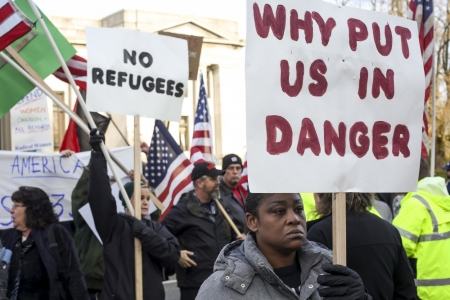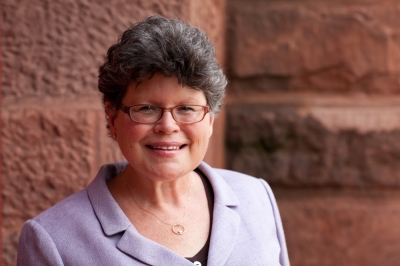It's Not Unchristian to Be Worried About Refugee Resettlement in America, Religious Freedom Advocate Says

Christian religious freedom activist Faith McDonnell is pushing back against the notion that it is unchristian to voice concerns with how the State Department is resettling refugees from Syria and other terrorist hot spots in the Middle East.
McDonnell, the the director of Religious Liberty Programs and the Church Alliance for a New Sudan at the Washington-based think tank Institute on Religion and Democracy, told The Christian Post on Monday that it's reasonable for Christians to voice concern about how the State Department is resettling only a minuscule percentage of Christian refugees from Syria and voice concern that the havoc being wrecked by Muslim refugees in Europe could also occur in America.

McDonnell took issue with recent remarks issued by Matthew Soerens, the U.S. director of church mobilization for the evangelical refugee resettlement organization World Relief.
Soerens, who works for one of nine agencies authorized by the State Department to resettle refugees inside the U.S., told CP this month that the notion that the State Department has an "anti-Christian bias" is baseless when looking at refugee resettlement numbers.
He pointed to State Department Refugee Processing Center data which shows that more Christian refugees have been resettled in the U.S. in the time-span between Jan. 1, 2006, and Dec. 31, 2015, than refugees with other religious affiliations.
Although more Christian refugees might have been resettled in the U.S. than any other religious group in the last decade, McDonnell points out her concern with the fact that the government has begun resettling more and more Muslim refugees from terrorist hot spots in the Middle East over the last few years and are now accepting more Muslim refugees than Christian.
In the last year since Oct. 1, 2015, more Muslim refugees (over 30,500) have been resettled in the U.S. than Christian refugees (nearly 29,000), according to the State Department Refugee Processing Center data. CNS News reports that this is the first time in over a decade the U.S. has resettled more Muslim refugees than Christians refugees.
But as the Syrian civil war and the rise of the Islamic State has caused hundreds of thousands of Christians to flee their homes in Syria over the last couple of years, McDonnell says that there is a real issue with the fact that the U.S. has resettled only 47 Syrian Christian refugees, compared to 9,077 Syrian Muslim refugees this fiscal year.
Soerens explained that there are "understandable" reasons why there is such great disparity between Syrian-Christian and Syrian-Muslim refugee resettlement in the U.S.
First, he said that the State Department refugee vetting process takes as long as 18 months and the refugees who are being resettled now are mostly Muslim refugees who fled their homes years ago when the Syrian conflict first started and before the Islamic State took power. He also explained that many Christians refugees fled to Lebanon, where the U.S. didn't begin resettling refugees from until recently.
"I think that [these are] true but I don't think that is a good excuse," McDonnell, who has had her share of disagreements with World Relief in the past, said. "I think for one thing, if you read Mindy Belz's book They Say We Are Infidels, you'll see that both Syrian and Iraqi Christians had been suffering for a long time, even before the Syrian war with Assad and everything started. We should have been prepared for that. If you are refugee resettlement people and you are seeing what is on the radar screen, if you had any thought in your mind at all that Christians are being persecuted because they are Christians, then they would have been on their radar screen already."
McDonnell said she thinks that the State Department should change the way it decides which Syrian refugees will be resettled, considering that the U.S. relies heavily on refugee referrals from the United Nations but many Christians stay away from U.N. camps due to fear of persecution from Muslim radicals.
McDonnell also believes that the State Department should expedite the vetting process for vulnerable Syrian and Iraqi Christian refugees. She detested Soerens' claim that expediting Christian refugees would be a "double-edged sword."
Although Soerens argued that expediting Christian refugees would cause other refugees to lie and say they are Christian, McDonnell argues that it wouldn't be difficult to confirm whether or not refugees were actually Christians, stating that there are baptismal records available and leaders with the Assyrian and Chaldean churches are able to vouch for many Christians.





















